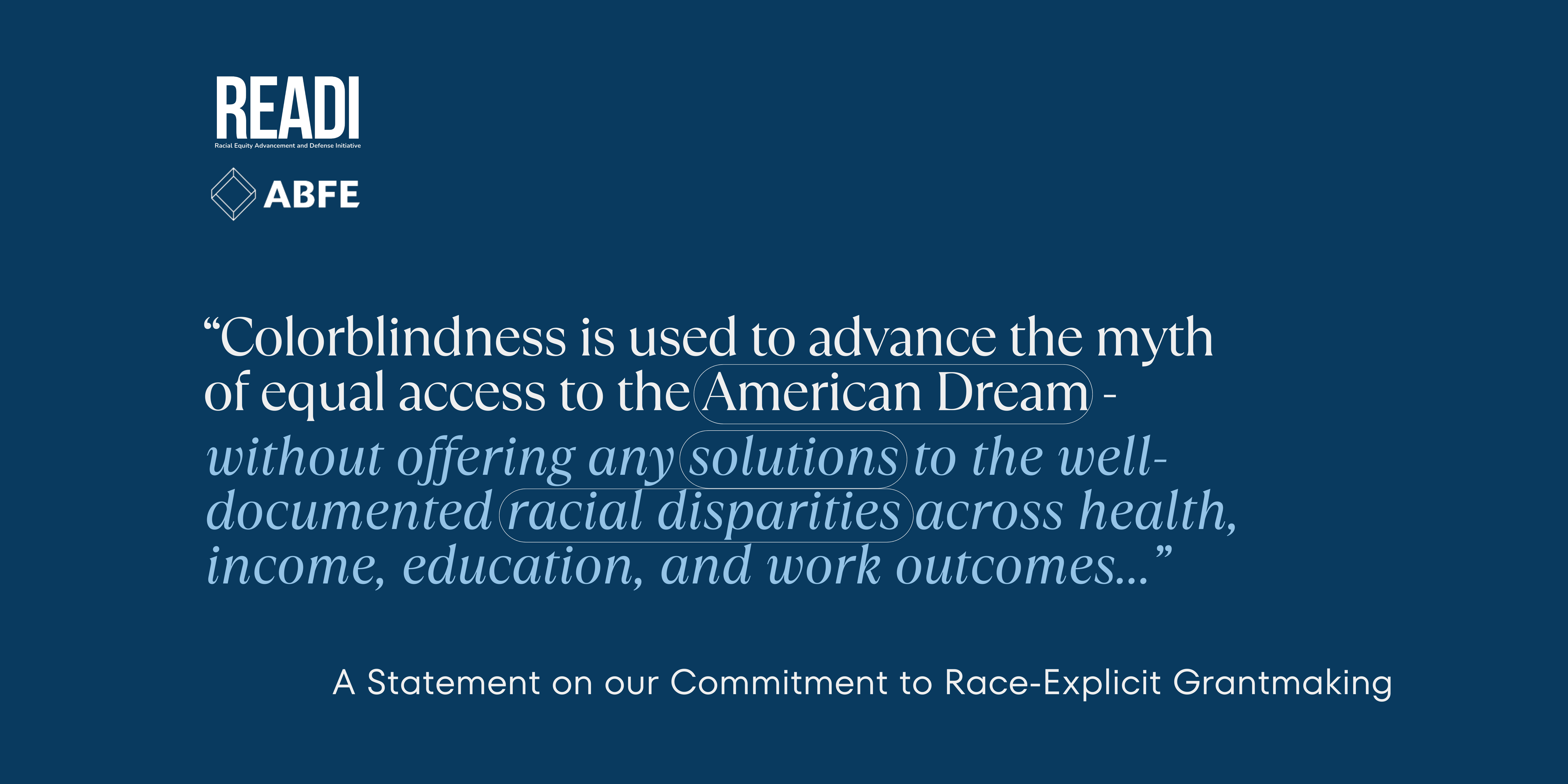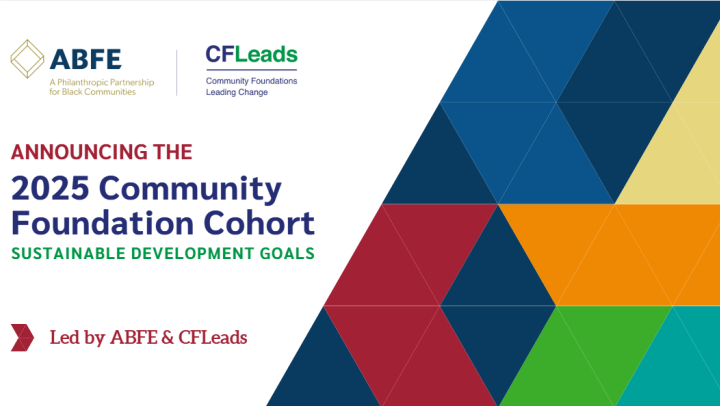A Statement on our Commitment to Race-Explicit Grantmaking

A Statement on our Commitment to Race-Explicit Grantmaking
January 29, 2025
What if race-explicitness serves us all, at the expense of none?
Current corporate and political leadership decisions are centering the idea of a colorblind meritocracy, one that ignores race in favor of recognizing merit. It’s a false choice.
The elusive idea of a colorblind society isn’t new–and initially was rooted in a true desire for equity, championed by progressive advocates in landmark desegregation cases. But today, accelerated in the aftermath of the Civil Rights Era, it’s been weaponized, evolving into the idea that any focus on race is racism. That is wildly out of step with reality.
Colorblindness is used to advance the myth of equal access to the American Dream–without offering any solutions to the well-documented racial disparities across health, income, education, and work outcomes. We have to talk about race if we’re going to have any meaningful conversation about equity.
If data shows that white people have higher rates of binge drinking than other groups, should we attack a health organization that prioritizes its alcohol dependence programs on this population?
If a mental health organization is working towards suicide prevention efforts, should they ignore data that shows Native communities experience the highest suicide rates, or that young AAPI women and girls experience higher suicide rates than their peers?
If data shows that school districts with the most Black, Latino, and Native students receive substantially less funding than districts with the fewest students of color, should we punish a foundation that works to account for these missing resources?
Everyone can benefit from race-explicit grantmaking. With it, we can more acutely address societal problems in a more targeted, effective way. Colorblindness erases that possibility.
Philanthropy has the power and responsibility to fill the gaps when our public sector falls short. We are being called to navigate a rapidly changing legal and political landscape, honestly assess our appetite for risk, and determine the transformative actions each of us can take to withstand challenges. This is the moment to own our influence.
In partnership,
Susan Taylor Batten, CEO of ABFE – A Philanthropic Partnership for Black Communities
This statement is sent as part of our ongoing Racial Equity Advancement and Defense Initiative (READI) work to promote, expand, and defend race-explicit grantmaking and programming and is cosigned by:
Lyle Matthew Kan, Interim President and CEO of Asian Americans/Pacific Islanders in Philanthropy
Ana Marie Argilagos, President and CEO of Hispanics in Philanthropy
Erik Stegman, CEO of Native Americans in Philanthropy

